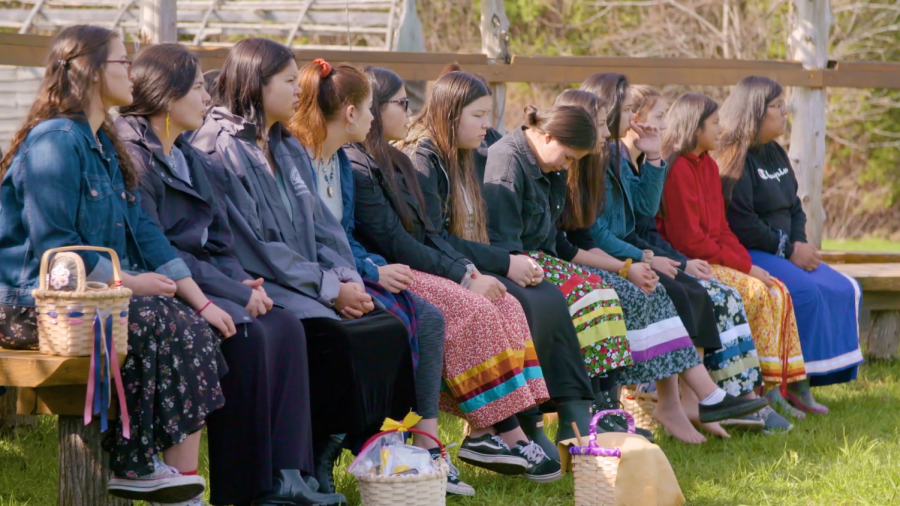“Without a Whisper”: how Indigenous women influenced the fight for women’s rights
Explore how Native American women contributed to the ideology of early women’s suffragettes
Asago:nhgweh women are taught to embrace their heritage through singing circles and group gatherings reaping and hand sowing crops together. (Photo courtesy of Katja Esson)
The topic of women’s rights is a relatively new concept compared to men’s rights, which is one of many reasons the month of March is designated as Women’s History Month. From sixth grade and onward, we are taught about Susan B. Anthony and the Seneca Falls women’s convention of 1848, but what if the fight for women’s rights could be traced back even further than that?
Cosumnes River College anthropology professor Anastasia Panagakos and history professor Diana Reed hosted a Women’s History Month screening and discussion on March 25 of the insightful short film “Without a Whisper: Konnón:kwe,” which explores the untold story of how Indigenous women influenced the early suffragists in their fight for freedom and equality.
Mohawk Clan Mother Louise Herne and Syracuse University women’s studies professor Sally Roesch Wagner shake the foundation of the established history of the women’s rights movement in the United States, joining forces on an informational journey to shed light on the hidden history chronicling the impact of Haudenosaunee women on the suffragettes of Seneca Falls, in an effort to change the historical narrative forever.
In this 26-minute short film documentary, filmmaker Katsitsionni Fox details how contact between the early suffragists— who lacked even the most basic rights— and the political and spiritual authority of the Haudenosaunee women helped shape their way of thinking in the struggle for equality that is easily taken for granted today.
This short film did exactly what it had set out to do in the first place: change the historical narrative forever. Not only was I informed of a greater influence behind the women’s suffragists of the early 1900s, but I was also allowed a glimpse into the fascinating cultural history that the Mohawk and Haudenosaunee tribes work hard to keep alive through the memories and teachings passed on to future generations.
“Without a Whisper: Konnón:kwe” makes its voice heard beyond a shadow of a doubt with its enlightening perspective in this retelling of history- except this time, they take all sides of the story into account.
Patricia Richards, a sociology and women’s studies professor at the University of Georgia specializing in the rights of Indigenous women in Latin-American countries, explained the significance of the film’s message in a press release for “Women Make Movies.”
“‘Without a Whisper’ corrects the historical narrative about women’s rights in North America, convincingly demonstrating how Haudenosaunee gender systems inspired US women’s suffrage activists,” said Richards. “A testimony to a history that has been suppressed, this sensitive documentary is evidence of Haudenosaunee continuity and resurgence. It should be required viewing in US history and women’s/gender studies courses.”
Informatively captivating, “Without a Whisper: Konnón:kwe” is a short documentary film every woman should see. This personally opened up the door for me into a blip in history many of us never knew existed. For what the Haudenosaunee and Mohawk women contributed to the fight for women’s rights, we should in exchange honor their history so that it is better well-known.
With a Los Rios student login, the short documentary “Without a Whisper: Konnón:kwe” can be watched by accessing the CRC library website, which gives LRCCD students free access to Films on Demand.












